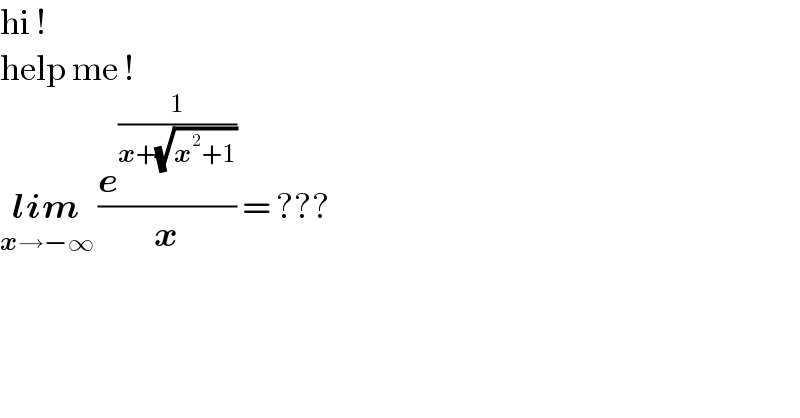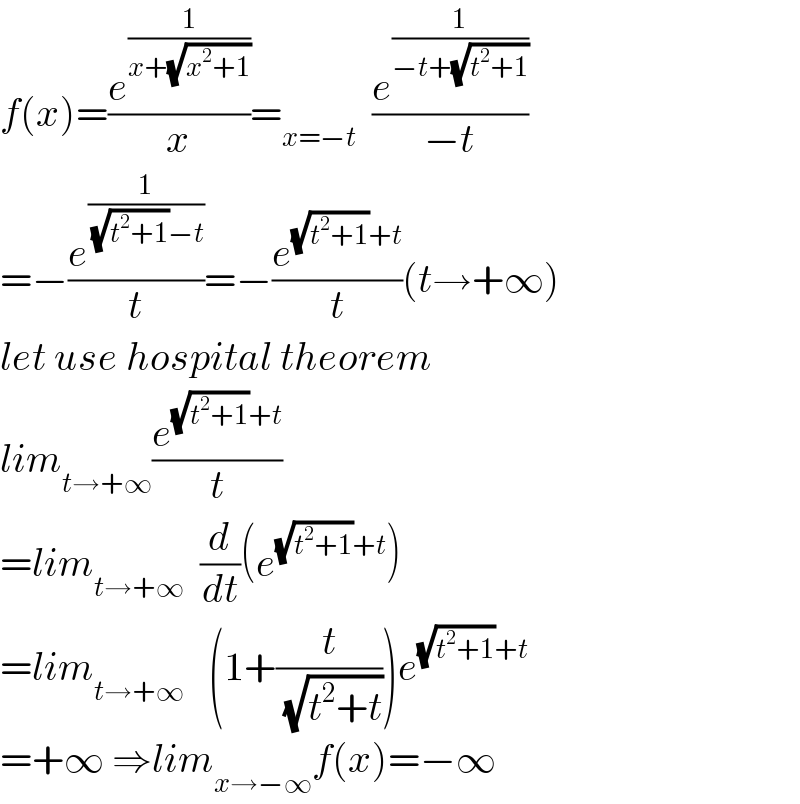
Question and Answers Forum
Question Number 166975 by henderson last updated on 03/Mar/22

Commented by null last updated on 04/Mar/22

Commented by henderson last updated on 04/Mar/22

Commented by MJS_new last updated on 04/Mar/22

Answered by null last updated on 04/Mar/22

Answered by MJS_new last updated on 04/Mar/22
![lim_(x→−∞) (e^(1/(x+(√(x^2 +1)))) /x) = [t=(1/(x+(√(x^2 +1)))) ⇔ x=((1−t^2 )/(2t)); x→−∞ ⇒ t→+∞] =lim_(t→+∞) ((2te^t )/(1−t^2 )) =lim_(t→+∞) (((d^2 /dt^2 )[2te^t ])/((d^2 /dt^2 )[1−t^2 ])) = =lim_(t→+∞) −(t+2)e^t =−∞](Q167017.png)
Commented by MJS_new last updated on 04/Mar/22

Commented by henderson last updated on 05/Mar/22

Commented by MJS_new last updated on 05/Mar/22
��
Answered by Mathspace last updated on 05/Mar/22

Commented by henderson last updated on 05/Mar/22

Commented by henderson last updated on 05/Mar/22

